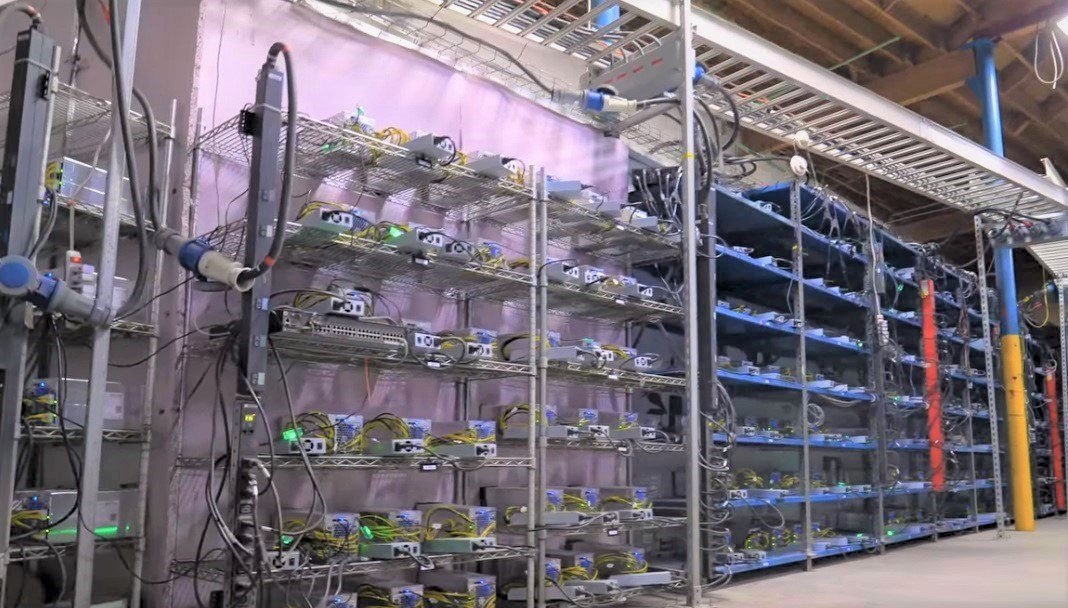Chinese Bitcoin Miners Lose Again after Flocking to Iran for Cheap Electricity

Bitcoin miners flocking to Iran for cheap electricity amid an ongoing clampdown by the Chinese government are in for a rude awakening. | Source:: Lars Hagberg / AFP
Many Chinese bitcoin miners migrated to Iran in 2018 for its cheap electricity amid China’s crackdown on crypto mining. However, they’re finding the harsh environment in the authoritarian regime unwelcoming.
Feng Liu operates a bitcoin mine holding over 20,000 units of Antminer T9. He told Chinese crypto website 8BTC News that many Chinese crypto miners flocked to Iran last year because electricity is cheap (as low as $0.006 per kilowatt-hour) in the oil-rich nation.
“If you want to invest in power plants in Iran, the government there will supply free natural gas for the first five years, which further lowers electricity costs.
“Gasoline costs only 0.6 yuan ($0.09) per liter and diesel 0.4 yuan ($0.06) per liter. Labor cost is also quite cheap.”
Bitcoin Mining Rigs Get Confiscated at Border
However, because of Iran’s generous electricity subsidy, the government has banned energy-devouring crypto mining rigs at border checks. As a result, mining equipment get confiscated at the border.
Liu says he was able to import 3,000 T9 miners into Iran last year with the help of several friendly border agents, who declared the rigs as computer processors. However, he has had trouble importing additional mining gear.
“The risk of miners being detained and confiscated at the border is quite high. It’s said that Iranian customs have so far confiscated at least 40,000 crypto mining rigs of various models.”

Greedy Power Plants Want 50% of Mining Profits
Another problem Liu has encountered is that while electricity is cheap in Iran, greedy intermediaries want huge cuts of bitcoin mining profits.
“I found a power plant that could offer electricity at 0.06 yuan ($0.009) per kilowatt-hour. After deducting operation costs, we agreed on a 70/30 profit split.
But two months later, the power plant claimed a 50/50 split and doubled the electricity price offer.”
However, the establishment of a state-approved cloud computing industrial park is offering a glimmer of hope. There are currently over 10,000 crypto mining rigs operating in the park.
“Mining investors need to pay a certain amount of refundable electricity deposit to the Iran’s state grid. Small and medium-sized miners could apply to enter the industrial park in groups.
With nearly 900 megawatts of power, the cloud computing industrial park can hold 500,000 to 600,000 mining machines.”
Electricity Theft Is a Recurring Problem in China
As CCN.com reported, China has cracked down on bitcoin mining amid recurring problems with scams and electricity theft. Bitcoin mining remains quite popular there, despite the government’s repeated suppression efforts.
In April 2018, police in the Chinese port city of Tianjin confiscated 600 bitcoin mining computers in the largest case of power theft in recent years.
The alleged theft was discovered after the local power grid operator observed an abnormal surge in electricity consumption. An investigation later revealed that bitcoin miners had tampered with a junction box to short-circuit the meters in order to avoid being charged for their power usage.
Similarly, in December 2018, a bitcoin miner in Taiwan was arrested for mining 100 million yuan (roughly $14.5 million) in crypto using $3.2 million in stolen electricity. The perpetrator allegedly operated 17 illegal crypto mining centers using fake storefronts across Taiwan.